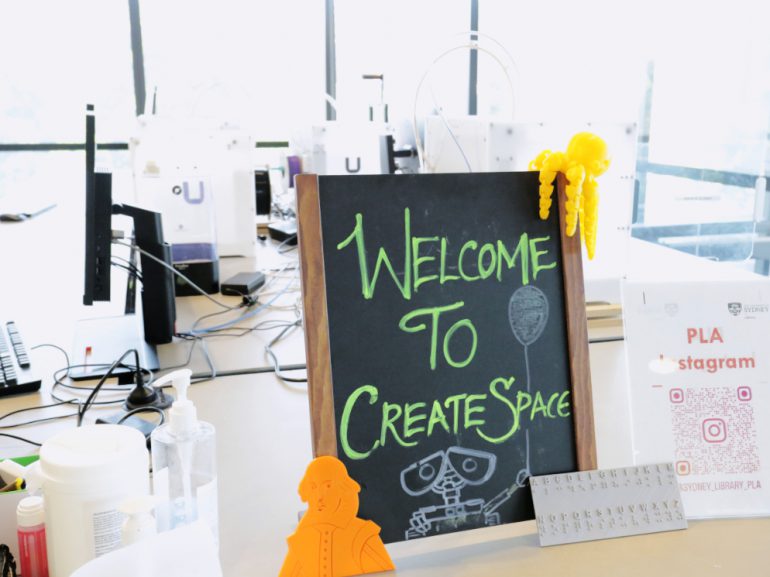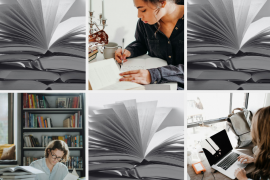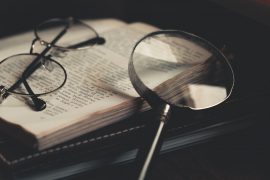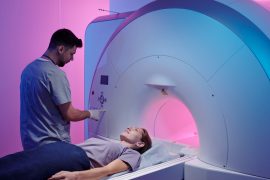The emergence and acceleration of generative AI necessitates reflection on what’s valuable for students to learn, and how this learning can be assessed. The Australian Universities Accord Final Report, the result of a significant review of higher education, highlights the need for graduates to develop, along with disciplinary knowledge, a set of skills it terms “generic skills” – digital literacy, creativity, collaborative ability, good communication, and the ability to solve complex problems (p. 12). While these skills are reflected in the Sydney Graduate Qualities, and so are infused throughout all courses at the University, it can take some creativity to effectively and equitably assess them. In these three assessment innovations, Sydney educators have designed thoughtful approaches that support the assessment of these diverse skills, with particular care given to developing meaningful marking criteria which include student-created criteria, and criteria that assess process in addition to product.
Eleanor Cowan and Philip McKibbin: Student co-design and self-assessment of tutorial participation
Dr Eleanor Cowan is a Lecturer in the discipline of Classics and Ancient History. She has previously co-designed and coordinated an OLE on “Speaking in Class” and currently coordinates FASS1000, the core unit for the Bachelor of Arts/Bachelor of Arts Advanced Studies. Philip McKibbin is the Postgraduate Teaching Fellow for ‘FASS1000 Studying Arts and Social Sciences’ and a PhD candidate in the Department of Sociology and Criminology at the University of Sydney, whose research explores love, politics, and multispecies relations.
FASS1000 is a large unit, mandatory for students with an Arts and Socials Sciences major. Our teaching team takes a strengths-based approach to supporting students’ transition to university, helping them to understand the university landscape and develop the skills to succeed in their studies. We do not assume prior knowledge or skills, but intentionally help students build up competence through embedding sequences of learning. In this innovation, we sought to help students develop skills in collaboration, participation, and evaluation by involving them in a co-designed process of assessing tutorial participation.
In each tutorial group, students collaborate to create a rubric for assessing their tutorial participation. The co-design process takes place over several weeks, and results in each tutorial group creating a different rubric. Early in semester, tutors begin the process by inviting students to reflect on their values and goals, and facilitate discussions on university learning and tutorials, framing participation as being connected to a community of learners, with benefits for individuals, their classmates and teachers. Primed by discussion and reflection, the students collectively draft the rubric, including a full range of marks and descriptors, which is then reviewed for further comments before being finalised. At the end of semester, students self-assess using that rubric. Tutors had the opportunity to review the marks, and to adjust if necessary after discussion with the student.
Participation is different for each person, and this innovation ensures that students are assessed on criteria that are meaningful and appropriate to them, equitably supporting the diversity of learners. This approach demonstrates trust and confidence in our students, fosters communities of learning, and supports transition as a process of belonging as well as becoming.
Moira Dunsmore, Gemma Saravanos, Heather Shepherd, Grace Cha, and Jesse Xu: The Podcast Project – assessing students in digital health communication
Dr Moira Dunsmore is a senior lecturer in the Susan Wakil School of Nursing and Midwifery and an early career researcher. Dr Gemma Saravanos is an Academic Fellow – Associate Lecturer in the Susan Wakil School of Nursing and Midwifery and a Registered Nurse and epidemiologist leading public health research and education. Dr Heather Shepherd is Principal Research Fellow at the Sydney Health Literacy Lab and Co-Lead of the Implementation Science Academy at Sydney Health Partners and contributes to teaching within the Susan Wakil School of Nursing and Midwifery. Grace Cha is the Manager of Learning Spaces and Services at the Library, fostering peer learning in the context of creative technology and digital literacies. Dr Jesse Xu is an educational designer in the University of Sydney’s Educational Innovation team and has a background of leveraging digital technology in medical research and supporting student education.
The University’s Susan Wakil School of Nursing and Midwifery, in collaboration with the Library’s CreateSpace, is evaluating an assessment innovation – a student-created podcast, an iteration of an existing assessment, for first-year Bachelor of Nursing students. Student-generated podcasts, recognised for their convenience and accessibility, have found a significant place in global information dissemination and education, as they can help learners shift from passive to active engagement, stimulating creativity and deeper interaction with content.
The Podcast Project is an authentic assessment that reflects a broader educational trend that integrates digital technologies to improve learning outcomes, digital literacy, and students’ engagement in a collaborative environment. The assessment task involves students working in teams to produce a short podcast on a relevant public health issue for a defined audience. This task involves a great deal of variety, including content creation, development of a podcast summary, transcript, cover art, and bibliography. These creative activities help students actively engage in learning content, while also developing collaborative and interdisciplinary skills, and graduate qualities in digital literacy, inventiveness, influence, and communication. Students are assessed on their collaborative process as well as their product.
This simple shift of assessment format shows great promise, with preliminary feedback from students indicating positive experiences – “[the assessment] helped build a community and support system throughout the subject. We were able to use team critical thinking skills to come up with solutions and share ideas”. Our ongoing study explores how this assessment innovation can help students collaboratively engage with complex health concepts, enhance their digital literacy, and foster a sense of inclusion and community among peers, with potential applicability to other disciplines.
Karen-Anne Wong: Using UDL to support equity in assessment
Dr Karen-Anne Wong is a practice-led researcher currently investigating representations of the posthuman through children’s literature. Karen has been a research affiliate and sessional academic at the University of Sydney since 2013, and in 2014 received the Dean’s Citation for Excellence in Tutorials. Her research interests also include diversity, disability, pedagogy and interdisciplinary methodologies.
I teach several units in the Department of Gender and Cultural Studies, all with very diverse cohorts, as shown in their Knowing Your Students (KYS) reports in Power BI. In a masters unit which I coordinate, one of the forms of diversity which students bring to the learning environment is familiarity with varied disciplines and forms of knowledge. Diversity is a strength in learning environments, so I sought to acknowledge and capitalise on this strength for the benefit of the class.
Taking inspiration from JK Gibson-Graham’s Diverse economies: performative practices for ‘other worlds’, I encouraged the students to bring their knowledges to our classes and to actively and creatively engage in co-creating new knowledges together. I then extended this approach to the final assessment, in which, using the Universal Design for Learning (UDL) principle, Design Multiple Means of Action & Expression, I offered students the choice to submit either a traditional essay, or to use all kinds of forms to present their work and demonstrate their competence in what they had learned in the unit. I designed a detailed rubric to guide them, giving them the freedom to address the marking criteria in any way they wished. Students submitted a brilliant variety of work, including a podcast, film, sound ethnography, personal essay/memoir, and photo essay, demonstrating their competence through their preferred forms of expression.
Establishing a classroom culture in which diversity was welcomed as an asset of the learning environment encouraged students to more confidently share their different ideas, and the multimodal assessment gave them equitable opportunities to demonstrate the learning they had achieved.
About everyday innovation
The everyday innovation series is about small, clever, creative and caring things that teachers at Sydney are doing in their classes. The scale of focus of this series is the quotidian, the extraordinary ordinary, the things we can do at arm’s reach, are comfortably within our resources, and are experimental – the stuff we try out together with our students in the lively spaces of our classes. Small ideas, while often overlooked on the big stage of awards and such, are special because they’re sensitive to their specific contexts. They’re often the simplest to implement and can allow nimble adaptations on the fly. These ideas deserve recognition and celebration! Let us know about your, or a colleague’s, everyday innovation by emailing us at [email protected].
Read other articles in the everyday innovation series for inspiration in your own teaching.





